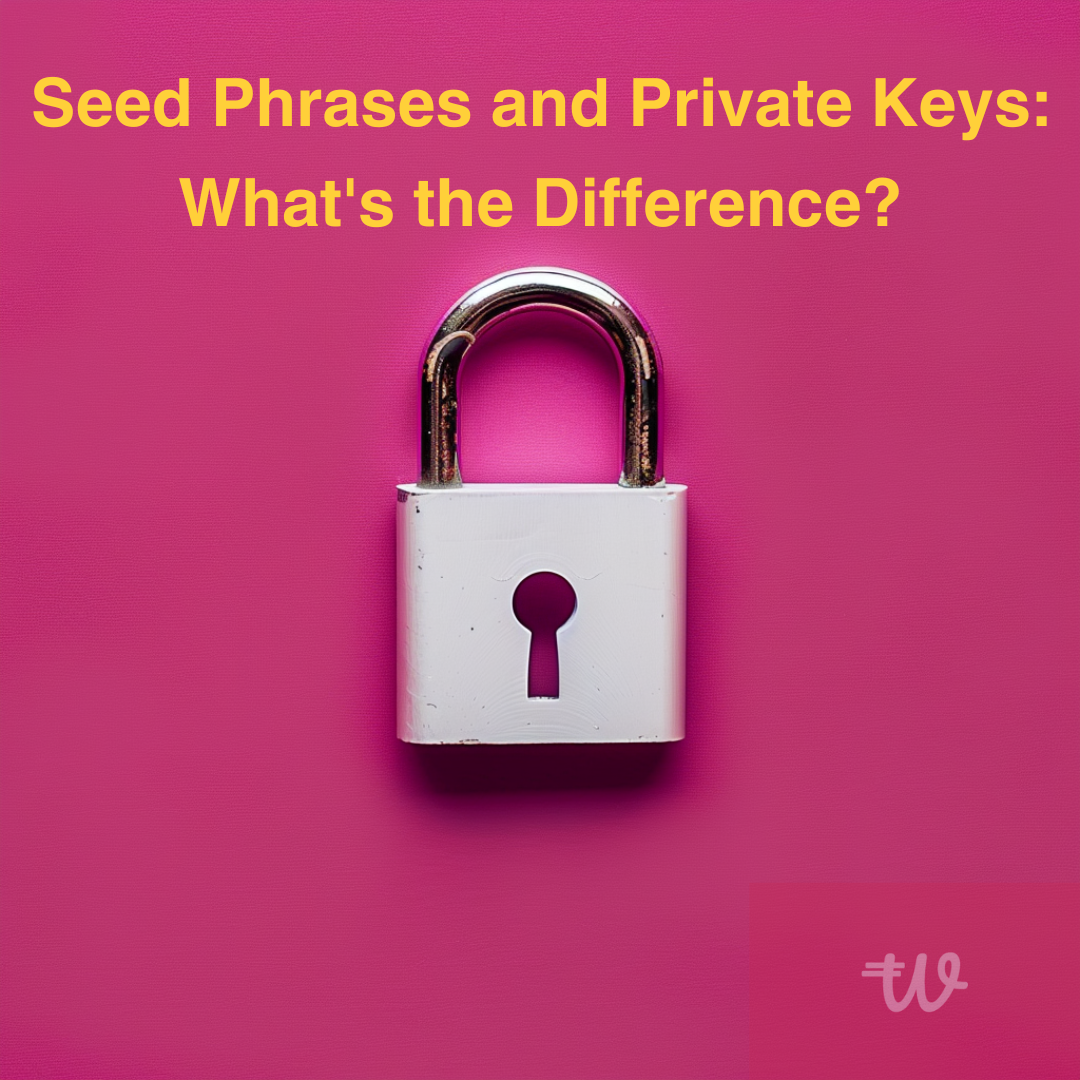Embarking on the crypto journey involves mastering essential concepts like seed phrases and private keys. In this exploration, we unravel the core of these cryptographic elements, demystifying their roles in safeguarding digital assets. Understanding how seed phrases work, their distinction from private keys, and their pivotal role in self-custody sets the stage for navigating the complexities of the crypto landscape. As we delve into this enlightening journey, let’s decode the essence of seed phrases and private keys, empowering every crypto enthusiast with knowledge and confidence.
Understanding Seed Phrases: A seed phrase, also called a mnemonic phrase, consists of 12 or 24 random words crucial for recovering a lost or damaged crypto wallet. This security measure is employed by both hot and cold wallets like MetaMask, Exodus, and Ledger, ensuring the protection of self-custodied digital assets.
Seed Phrases vs. Private Keys: Different Purposes While often used interchangeably, seed phrases and private keys have distinct roles. Private keys, alphanumeric strings for approving transactions, differ from seed phrases, which act as a recovery mechanism. Losing a private key exposes funds, but a seed phrase adds an extra layer of security.
The Essence: Gaining Control Crypto enthusiasts embrace self-custody to gain control over assets and avoid centralized entities. The seed phrase ensures ownership and security, a vital component for those seeking a permissionless and secure alternative to traditional banking.
How Seed Phrase Recovery Works: BIP39 Standard Utilizing standards like BIP39, a seed phrase converts into a binary seed, generating private keys and public addresses. After setup, daily access doesn’t require the seed phrase; a passcode or PIN suffices. The seed phrase becomes crucial if the device is lost, allowing users to restore access.
Pros and Cons of Seed Phrase Recovery: Proponents highlight full control and compatibility across wallets, promoting security. Critics point to a single point of failure, stressing the need for proper offline storage and security awareness.
Navigating the Crypto Landscape: Final Considerations The crypto landscape offers diverse wallet options, each with its complexities. Understanding these innovations is crucial, fostering better education within the crypto community. Scrutinizing decentralization claims emphasizes transparency and user awareness for a secure digital journey.
About BIP39: BIP39, or Bitcoin Improvement Proposal 39, is a standard ensuring a consistent method for creating mnemonic seed phrases. This human-readable backup allows users to recover their cryptocurrency wallets. BIP39 enhances interoperability and security across various wallet implementations.





